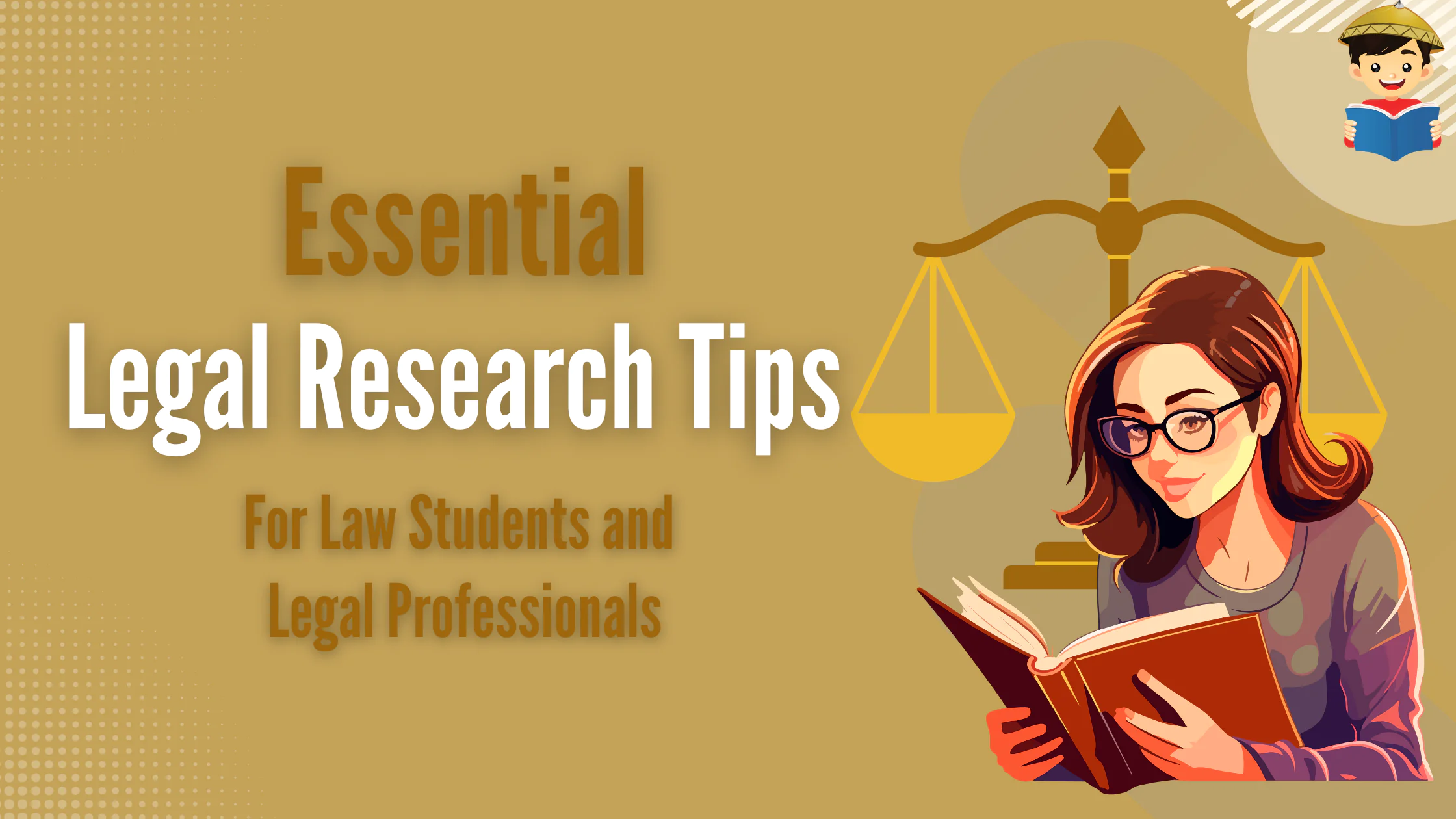Essential Legal Research Tips for Law Students and Legal Professionals

Legal research is one skill that will always be your reliable partner, regardless of your level of experience as a legal practitioner. It’s akin to having a hidden weapon that makes your arguments so strong that even the most adamant opponents will find themselves scratching their heads.
In this post, we’ll discuss some practical techniques to help you improve your research abilities and conduct more efficient and complete legal research.
Table of Contents

What is the Importance of Legal Research?
Legal research involves delving deeply into different legal problems and ideas. Examining pertinent statutes, rules, and case law can help you understand the legal environment better and make better judgments.
Building Strong Legal Arguments
A well-conducted legal research process is critical to building persuasive arguments. When you back up your points with authoritative sources and precedent cases, you not only strengthen your arguments but also boost your credibility.
Supporting Legal Opinions and Decisions
It is important to note that legal research is not solely focused on gaining cases. It pertains to formulating decisions that will endure scrutiny. Having a well-researched opinion to support one’s position is akin to possessing a suit of armor that shields one from any legal tangles.
Types of Legal Sources
Primary Legal Resources
Statutes, regulations, and case law are all primary sources. These sources represent the actual law and are essential for legal study.
Statutes: Legislative enactments, laws, or ordinances.
Case Law: Judicial opinions from courts.
Regulations: Rules issued by governmental agencies.
Secondary Legal Resources
Secondary sources give analysis, discussion, and interpretation of original materials. They are beneficial for broadening your grasp of legal ideas and concerns.
Legal Encyclopedias: Comprehensive summaries of legal topics.
Law Reviews: Scholarly articles analyzing legal issues.
Treatises: In-depth books on specific areas of law.
Online Databases
Online databases like Westlaw and LexisNexis provide enormous archives of legal knowledge. These platforms enable access to a large range of primary and secondary sources, allowing for more efficient legal research.
Effective Legal Research: Tips and Tricks
Success in the legal profession is mostly dependent on good legal research. Here are a few essential techniques that can improve your research abilities.
Develop Effective Search Strategies
Finding the information you need quickly requires crafting high-quality search queries. Use specific terminology associated with your subject and synonyms that might be found in legal documents.
The AND, OR, and NOT boolean operators can help you in focusing your search. Vary your searches often to get the best results. To focus your search, for instance, if you’re researching “employee rights in workplace discrimination cases,” you may use Boolean operators and question marks, such as:
Start with Secondary Sources
To begin your research, consult secondary materials such as practice manuals, law review articles, and legal treatises. These books save you time and effort by providing a detailed overview of your legal subject and often citing pertinent original sources.
Secondary sources can lead to more specific information. Further specialized information can be found in secondary sources.
Verify with Primary Sources
Though secondary sources are helpful, always confirm your knowledge with primary sources. These comprise legislation, case laws, rules, and court decisions. Verify the provided information and that you can access the most recent versions. Official and trustworthy legal information can be found in primary sources.
Use Citators and KeyCite Features
To determine a statute or case’s current status and precedent value, use Shepard’s on LexisNexis or KeyCite on Westlaw. These resources ensure that the material you rely on is still reliable and accurate.
They make it easier to investigate and evaluate previous court decisions, guaranteeing that your argument is supported by strong evidence.
Utilize Annotated Codes
Annotated codes are priceless tools since they provide legislation, case law interpretations, and citations to other sources. They give background information and point you toward pertinent instances and legal analysis of certain laws. Knowing how statutes are used and understood in practical situations is made much easier with annotated codes.
If you include this advice in your regular legal research regimen, you will be better able to negotiate the complexity of legal material and increase your legal knowledge.
Legal Research Tools
Many resources and technologies are available to support the legal research process. These instruments can improve the precision and effectiveness of research activities.
Philippines Case Digest Website
Legal practitioners who concentrate on Philippine law may find the Philippines Case Digest website very valuable. It provides access to case summaries and digests for fast case law reference and study.
Westlaw and LexisNexis
Leading legal research databases, Westlaw and LexisNexis, provide extensive compilations of legal content. Any legal researcher needs sophisticated search features and large libraries.
Legal Citation Guides
Legal writing depends critically on proper citation. Legal citation guidelines that guarantee uniform forms for referencing legal sources include The Bluebook and the ALWD Guide to Legal Citation.
Conclusion
For both active professionals and law students, ongoing development of their legal research abilities is critical. The advice in this article can help improve the depth and effectiveness of their research procedures. Suggestions and comments for future enhancement are always appreciated.
When used, these techniques will raise the standard of legal practice and research results.
Relevant Articles: 10 Tools To Boost Productivity And Simplify Tasks In 2024, How to Write the First Sentences of Your Essay
Written by FilipiKnow
in Legal Matters, writing
FilipiKnow
FilipiKnow strives to ensure each article published on this website is as accurate and reliable as possible. We invite you, our reader, to take part in our mission to provide free, high-quality information for every Juan. If you think this article needs improvement, or if you have suggestions on how we can better achieve our goals, let us know by sending a message to admin at filipiknow dot net
Copyright Notice
All materials contained on this site are protected by the Republic of the Philippines copyright law and may not be reproduced, distributed, transmitted, displayed, published, or broadcast without the prior written permission of filipiknow.net or in the case of third party materials, the owner of that content. You may not alter or remove any trademark, copyright, or other notice from copies of the content. Be warned that we have already reported and helped terminate several websites and YouTube channels for blatantly stealing our content. If you wish to use filipiknow.net content for commercial purposes, such as for content syndication, etc., please contact us at legal(at)filipiknow(dot)net